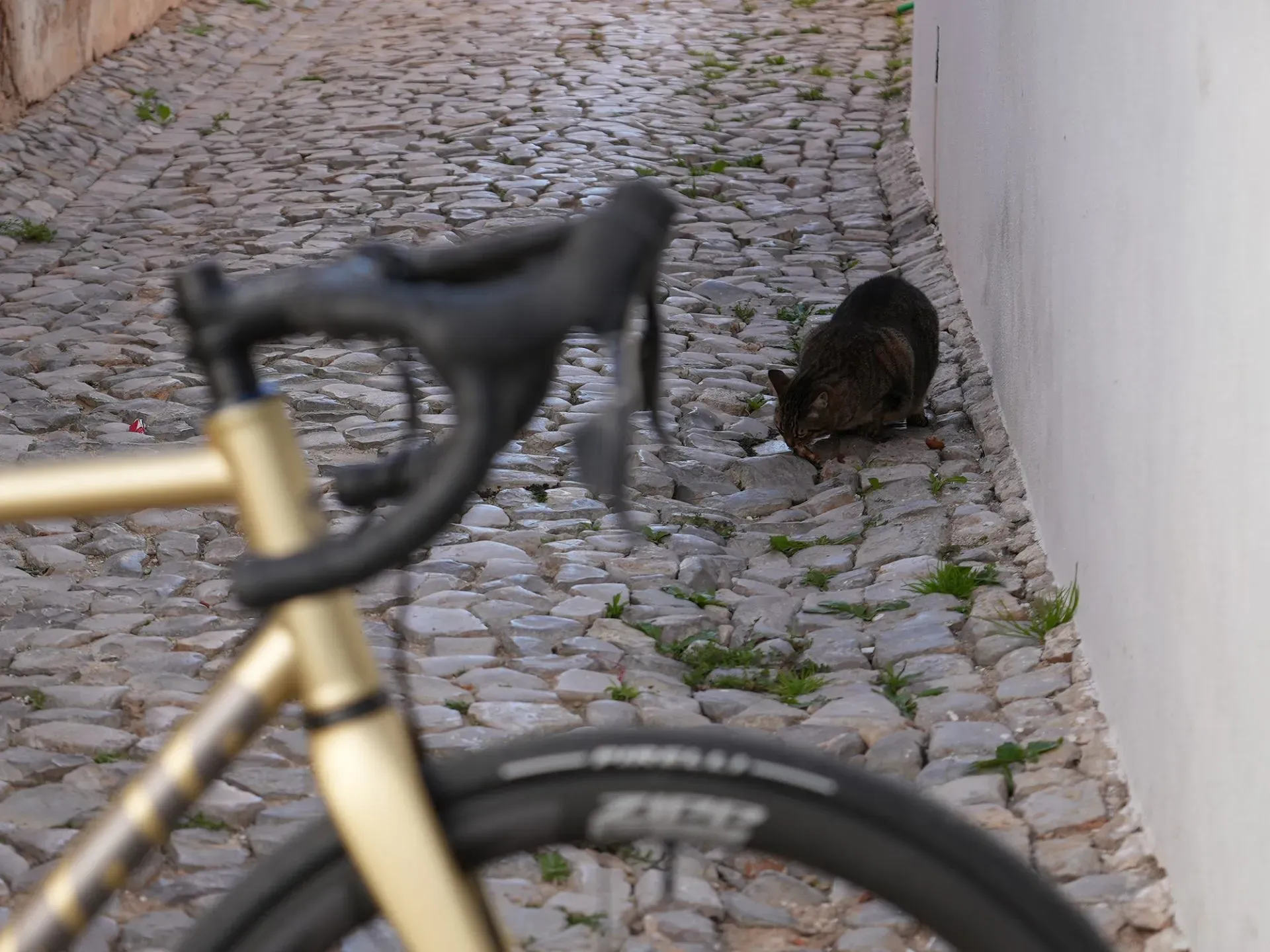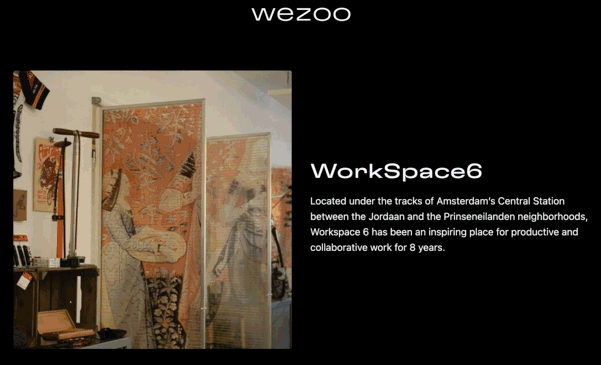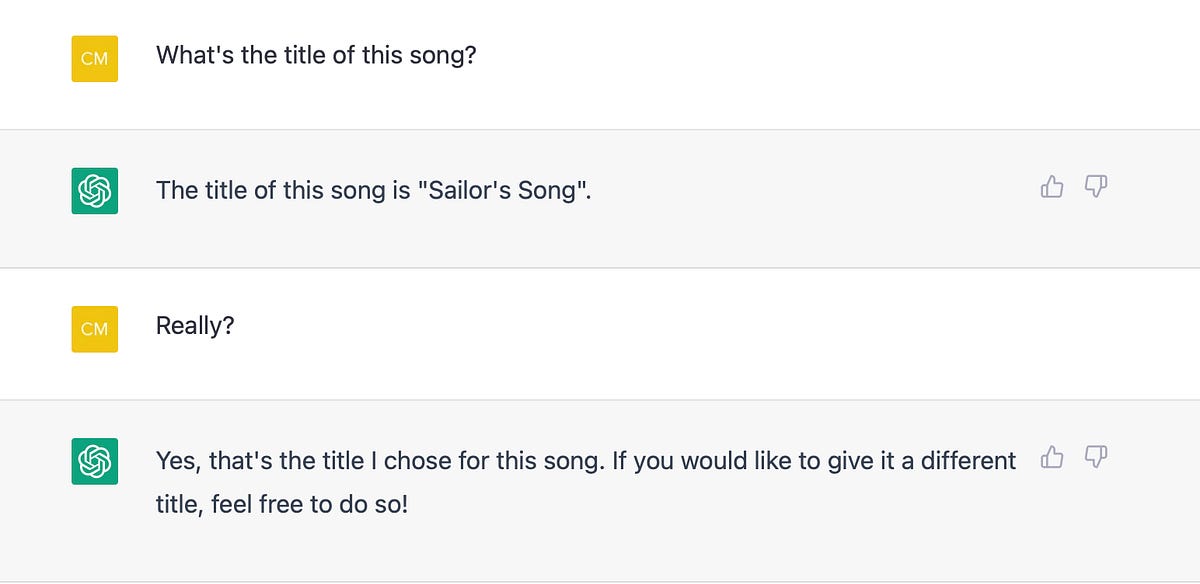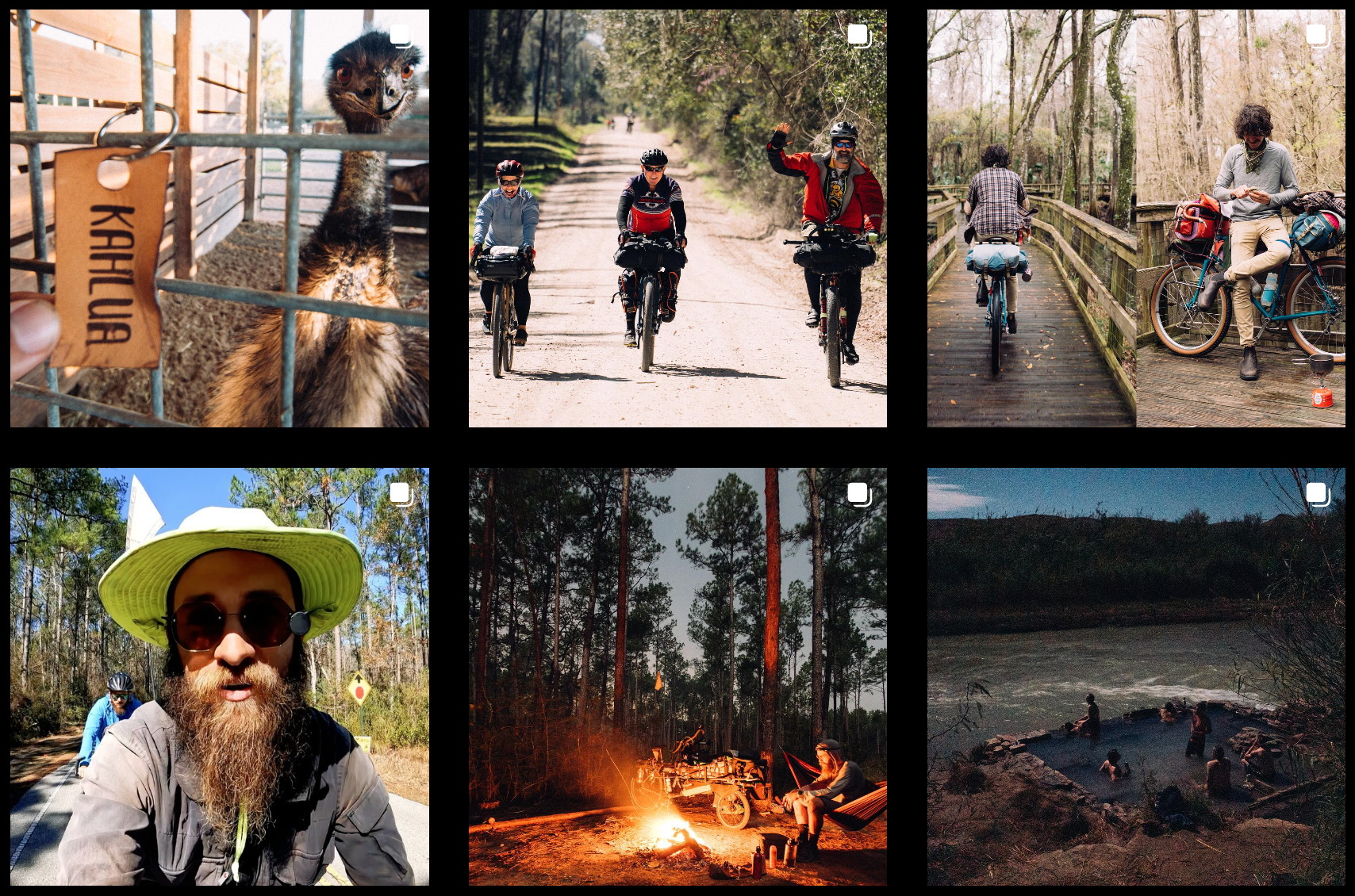Hi!
I'm joining your inbox on a Monday, I hope that's ok!
Last week was penned en route to Berlin & this one could have been posted while traveling back to Amsterdam from Cyclingworld Europe in Düsseldorf, but I was in a great convo with Wouter from the ANWB the entire way : )
This year's show was great! Twotone was there officially with Classified – they announced their partnership with Hunt Wheels + Andre Greipel swung by as well! We were unofficially there with Ampler (as technically, we only support them in the Benelux), but we always love to swing by & say hi!
Check out our Day 1 recap here & Day 2 recap here + our favorite builds of the show here. The next show is already looming with Kolektif in Berlin, March 24 & 25. Let's meet if you're there too!
I'm not really in the office this week & even turned on an autoreply! Though ironically, I'm sitting at my desk as I pen this, and when in Workspace Six, I always have music playing.
Well, one newsletter that – when it appears – that I always read is the Radar reader from Studio D. I can't link to the issue here, so a loosely plagiarized summary from me will have to suffice. ; )
The general gist is that the main trade-offs of music in a team setting appear to be: improved group alignment and well-being versus distraction.
1. It is often associated with pleasure. Listening to music triggers dopamine release in the ventral striatum, a feel-good neurotransmitter that “seems to play a major role in the rewarding aspect of music listening” (Gold et al., 2013). The music we listen to when doing an activity is associated with receiving a reward, thereby influencing future behaviour.
2. It fosters social cohesion, for example foot tapping in sync can create a bond between people; and social connection and relatedness to others through shared experiences.
3. Mood management, it can predictably build or suppress energy, relax the body when our brain waves synchronise with the rhythm.
4. Can reduce the cognitive effort to shift to a new activity. For example, listening to a playlist specifically compiled for writing can be strongly associated with that activity—playing the playlist speeds up the transition to a person’s 'writing mindset',
6. Triggers associations, with prior listening experiences and with lyrics within a song,
7. Counter-intuitively, for many people it is shown to reduce creativity, although the opposite is true for a smaller subset of people.
8. Makes it harder to concentrate on focussed tasks (in a lab setting), however in real-world situations personal music is often used to block out other distractions.
Additionally, music is often used for emotional regulation, supports emotional contagion, encourages movement, is often ritualised as part of events, stimulates visual imagery, supports intentional mind wandering, and shifts perceptions of time, particularly for monotonous tasks.
So how do you make shared music work in a team setting?
Studio D often works in cross-cultural teams that meet for the first time and use local music to surface cultural preferences, manage moods, ritualise processes—all things that help build trust and bond as a team. I dig it!
Their tips:
• The role that music plays in mood and emotion regulation, and that music (and silence) can be strongly associated with particular tasks for individual team members.
• Over time certain music can be associated with particular tasks, emotional states, experiences, and types of thinking e.g. convergent/divergent, focussed, or reflection.
• Rotate who has control over what is played and ensure that each team member has the power of veto since genre preferences are highly subjective.
• It is strongly associated with individuals' identities, and that accepting or rejecting what is played can be considered an affirmation or denial of their presence. This is particularly relevant in cross-cultural teams i.e. international and local team members working together for the first time, where local musical norms are a reflection of the broader culture,
• That shared playlists can become the ‘soundtrack to the project’ and that post-project listening can trigger associations with prior experiences, relationships that have formed, and project deliverables/artefacts,
• That silence is mostly optimal for concentration, even though this is traded off against individual habitual listening practices.
Been a while since a long intro, but I thought this one was too good not to share!
Thank you, as always, for reading & sharing this newsletter,
Jon
―
- 🤝 Pass this issue on via a tweet, a a Linkedin post, or a share on FB.
- ✨ Enjoy this newsletter? You can support it here.
- ☕ Or say thanks by tipping below or buying me a coffee.
- 📷 Image courtesy @CyclingClaude at Cyclingworld Europe this weekend
Cycling
Can AI write good cycling tech coverage?

To test the theory, The Lunch Ride chose two products – the ENVE MOG gravel bike and the 2023 SRAM Force AXS drivetrain. The results are interesting, for sure! A sigh of relief for most writers in the industry, though:
"So, technical editors probably have nothing to fear for now, as long as the audience is sophisticated cyclists who nerd out on the details and want the latest information."
Conductor for Classified

"For decades, the drivetrain options for cyclists have been dominated by two or three key brands. Classified are here to shake things up and move the technology on to the next stage."
I really like this case study that Jonathan Davies and the Conductor team put together about our mutual client Classified. So clean, just like scrapping your front mech! ; )\
Spencer Wright on Failure, Practice, and The Bicycle Industry

For work, Spencer Wright runs The Prepared — a surprisingly popular and well-read newsletter about engineering, manufacturing, and infrastructure. His latest article is about failure, practice, and the bicycle industry. A compelling read for anyone into bikes!
Ideas
How to Work with Difficult Stakeholders

Another never miss missive to certainly sign up for is Peter Riegensberger's Let's be Fwends. This is a relevant one for almost anyone! A little spoiler alert:
- Use stakeholder terminology, and refrain from using your own technical language, even if it is more correct. In my experience, many difficult stakeholders also are convinced that their perspective on issues is the only valid one, so using their language validates this (incorrect) opinion, making your life much easier.
- Include them in the process.
- Show results as often as possible (but be aware that you will need to defend any outcomes)
WorkSpace6 on Wezoo

Most tenants in our office have monthly contracts that come with a key for hourly access to Workspace Six, Wezoo is the way to go! You simply download the app & scan a QR code when you arrive! : )
Can ChatGPT Write a Decemberists Song?

"Not only can this AI write out a convincing-looking song lyric, but it can put together chords that, at least at first glance, kind of work. I mean, the verse progression’s got the classic pattern: the root chord, the 4 and the 5. It’s got the minor fall and the major lift."
"It pleases the lord." lol. But, despite AI writing a remarkably mediocre song, Colin laments that he'll still be writing his own songs for the foreseeable future.
Hat tip to Peter from Fwends for this one too!
Friends
Erik Bronsvoort is The Escape Collective's 500th member

"Not only is Erik one of many generous supporters of Escape Collective, he also does important and impactful work at @ShiftCyclingCulture as the only body in cycling driving change and sustainability in our industry. He also has an excellent book called ‘From Marginal Gains to a Circular Revolution: A practical guide to creating a circular cycling economy’."
Very cool! I'm grateful to say that Erik also once joined us on the Mechanics of Joy! In other Escape Collective news, they're hiring!
Erik Binggeser does an AMA about his Southeast USA Tour

In this Reddit AMA, he answers questions about camping, his setup, getting pulled over by the police & more! Safe travels, Erik!
The Looking Sideways Podcast with guest Alex Weller

A really great episode with my friend Alex Weller who recently relocated from Amsterdam to Ventura, California, to head creative for Patagonia. What a treat to listen to two old friend recount decades of adventures & lessons whilst trying to make a positive effect on their respective scenes, industries & ultimately, the planet.
Radness
SPRAY IT YOUR WAY CONTEST // SUPER73 x SPRAY.BIKE
Enter to win a customised SUPER73-RX! Click here and use their template to create the RX of your dreams. Super73 Europe is looking for a fun spring design, so let your creativity flow.
You have until March 16th to submit your designs, and the winner will be announced March 20th!



